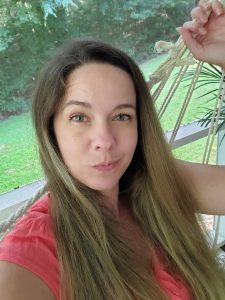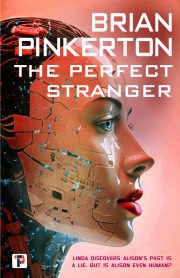Whoops, I Wrote a Story: How to Make App Addictions Work for Your Writing
by Marie Croke
Editor’s note: This piece is part of an occasional series titled Writing by Other Means, in which authors share personal experiences and industry intel around different production contexts and writing tools.
From phones and tablets to computers, we all tend to fall into habits once we turn the power on, whether those habits lead to social media, games, endless news, or some other vice. Despite all our good intentions, those habits hold us in thrall and require a great deal of motivation to overcome—on a daily, hourly basis—sometimes forcing us to struggle down to the minute.
But what if turning on our devices didn’t have to mean time sinks? What if those dead minutes we turn to our phones to fill could work for our writing rather than against it?
Habit is an immense force. A deadly one to our productivity if we allow it. Or a beneficial one when we turn muscle memory and neuron-firing pathways to our own designs, using minimal motivation.
Merriam-Webster defines habit as “an acquired mode of behavior that has become nearly or completely involuntary.” And it’s that “completely involuntary” part that can really get us into trouble.
Have you ever put your phone down and then immediately picked it back up? Shut down an app, only to click on it a few seconds later? Found yourself typing a website address into the search bar on your computer when you sat down to do something so wholly different that you end up pausing and blinking at your screen, trying to remember making the decision to head toward that forum, that popular social media site, that place that eats your time like it’s ants crowding around the edges of your brain?
Yeah, let’s manipulate those moments to our advantage.
Before we start, I want you to test your habits. Document them. Where do your fingers automatically go when you pick up your iPad? What app is the first one opened the moment you pick up your phone, even when you weren’t consciously choosing to open it? Did you consciously sit down at your computer for a specific reason, or was that just another ingrained habit?
Find where your brain disengages because that’s the part of the habit we’ll target. Now, you’re going to manipulate yourself as if you were an evil villain playing a trick.
First, you’re going to make those time sinks harder. Remove apps from your home screens. All those easy favorite buttons? Delete them. Clear your histories. If you absolutely need the tabs you have open, use a browser extension such as OneTab to compile and close them. Stack a bunch of random stuff on your favorite sit-and-waste-time comfy spot. The television that you turn on the moment you get home gets hooked up in front of your most uncomfortable chair (or maybe no chair) or tucked into a room you never go into. Maybe even leave your phone on the other side of the room (or in a completely different room!) so you can’t just roll over in bed and pick it up.
Second, you’re going to guilt, ahem, trick yourself. That’s right. That writing app you downloaded to your phone and never opened? You’re going to put that app exactly where your time-sink app used to be on your home screen. A brand-new, fresh document will go where your game, or Steam account, or music once was. Favorite buttons will become links to documents or writing articles or, in my case, 4thewords.com (a gamifying online writing application on which this article was written). The phone you left on the other side of the room? You’re putting a notebook with it, or on it, like they’re buddies.
Third, you’re going to write one sentence. That’s it. A sentence consists of a subject and a verb. You could get away with two words. Two words. Don’t get me wrong, a story consisting of only two-word sentences probably isn’t going to be the best around, but hey, you could try. I would read it! Thing is, a single sentence is easy. And that notebook sitting by your computer/phone/favorite TV spot doesn’t have to be filled up fast. We’re just conjoining words with your time-sink habits. We’re postponing your bad habits by intermingling them with good ones.
A few more examples to get your evil villain’s creative thoughts flowing:
- Do you open your email first thing every morning as part of your job? No worries. Make your first email every morning one to yourself with your new sentence (or two or ten).
- Or maybe you’re a show junky. Get some sticky notes and stick one on your screen every time you turn it off to remind you to write a sentence next time. Or hide the remote under a notebook.
- Leave your controllers off their chargers (I know, I can hear the gamers crying, but we’re evil villains, remember?) and a notebook next to them, so you have to wait for one to charge anyway, so you might as well write your sentence while you wait.
You know yourself better than I do, so maybe none of these suggestions are perfect for you, but you can tweak them to fit or come up with something even more incredibly diabolical.
Most importantly, give yourself permission to write whatever you want. Remember, this isn’t your dedicated writing session. This isn’t you motivated to write a brand-new story that popped into your head. This is you manipulating yourself like an amazingly smart evil villain so you can get some whoops stories on the page. Because they will come.
I have multiple whoops stories that I’ve written on my phone that have gone on to be published. (Shout-out to Diabolical Plots for loving two of them!) All because I swapped my Reddit app for my writing app and kept accidentally pushing the wrong button and telling myself, well, I’m here, might as well get that subject-verb tapped out really quick…
 Bio
Bio
Marie Croke is a fantasy & science-fiction writer with over 40 stories in publication. She is a graduate of the Odyssey workshop, first place winner in the Writers of the Future contest, and her work has been published in Beneath Ceaseless Skies, Apex Magazine, Diabolical Plots, Zooscape, Fireside, and Cast of Wonders among many other fine magazines and anthologies. She has worked as a slush editor for multiple magazines, including khōréō, and has written reviews for Apex Magazine. She is now an Acquisitions Editor at Dark Matter INK. She lives in Maryland with her family and enjoys crocheting, kayaking, and aerial dancing in her free time.



